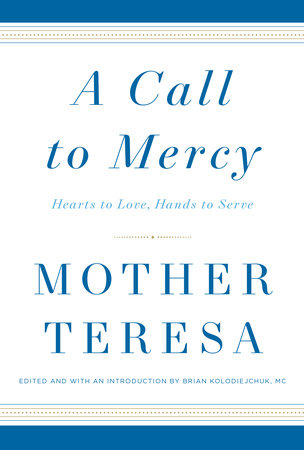
Mother Teresa took a fourth vow, “wholehearted and free charity.” Charity must be free. Mercy must be simple, no strings attached. “People criticize us” she writes on page 7 of the new book, “because of this word free. The other day I read in one article written by a priest that charity is like a drug for the poor. … I’ve decided I will write to him and ask him: ‘why did Jesus have pity on the people?’ He must have drugged them when he fed them by the multiplication of the loaves…. He fed them first. One more question I’m going to ask him: ‘did you ever feel the hunger of the poor?’”
Yesterday I was heading out of town to hear confessions at another parish—to minister the very sacrament of mercy. At the corner of Octavia and Market, just before leaping into hyperspace on the 101 freeway, I stopped at the traffic light. A man stood begging for bread outside my window. I lowered the window to give him some money. “God bless you,” I said. “Oh, He does, several times a day!” the poor man beamed. “You have a beautiful joy,” I replied.
And then my own San Francisco Lazarus said: “I know the man upstairs”—he pointed to the sky—“will always take care of me!” This man was an angel—not in the literal sense, but a true messenger of God, just what I needed to prepare me to hear confessions. I gave that man a little money, and he gave me a treasure—he gave me faith and joy. Or rather, he allowed the good God to bless me that morning.
We ask the perennial question: should I give money to a homeless man, and if so, how much, and how often? Jesus told us we would never eradicate poverty (“the poor you will always have with you”). As a policy, the Missionaries of Charity do not give money to beggars. They establish homeless shelters and soup kitchens. But for those of us who cannot manage comprehensive aid to the poor, should we give them a few dollars from time to time? Are those occasional few dollars just a drug? Does it train them in bad habits? Do I do it just to soothe my own conscience?
The answer, it seems to me, is in today’s gospel, illuminated by our great saint, Mother Teresa. Yes, we should give to the poor, and give until it hurts. Sometimes we should give money, and sometimes we should give our time in a soup kitchen and sometimes we should undertake more comprehensive aid projects such as soup kitchens or parish organizations like St. Vincent de Paul. God will show us how. The subtitle of Fr. Brian’s book is Mother Teresa’s phrase “give your hearts to love, and your hands to serve.” First is love, then service. First the heart, then the hands. And that is what distinguished her method from government aid. She gave free and wholehearted service to the poor. Her goal was not to eradicate poverty, or even to solve the problems of even one person. Her goal was to give her heart in love to that person. If we give our hearts, God will do the rest.
Even if I don’t give to that man at Octavia and Market a few dollars, I will give him a smile, a thought, a prayer. He is my brother. The rich man in today’s gospel never gave Lazarus even a thought, never a smile, it seems. He just walked over him, day after day. I walk past the poor, beginning with the lonely and the frustrated in my own home, many times a day. But God always offers us another day, another chance, to give our hearts to that one person. Mother Teresa was extraordinary in giving her heart to just about everyone she met. I don’t think I can do that, but I can give my heart to one or two people a day, at least. I turn to the Mother of God to help me see the poor in my daily path, and to have the patience to give a bit of my heart to them today.
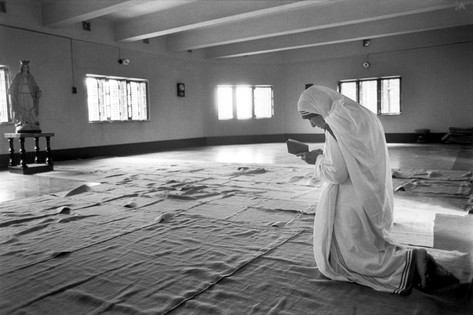
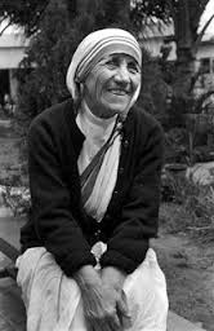
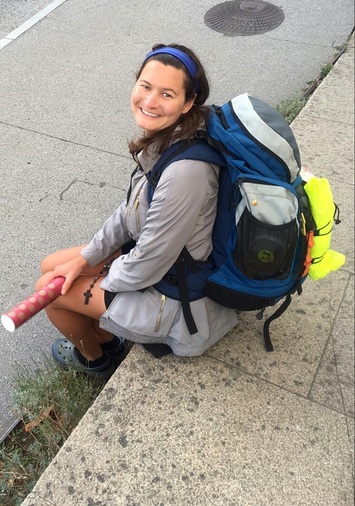
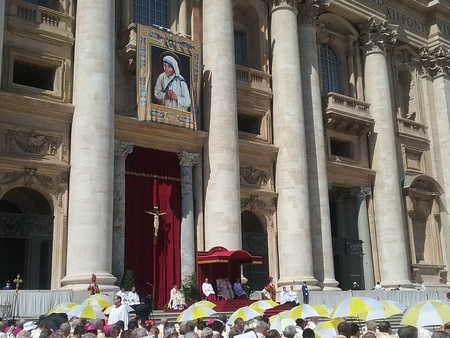


 RSS Feed
RSS Feed